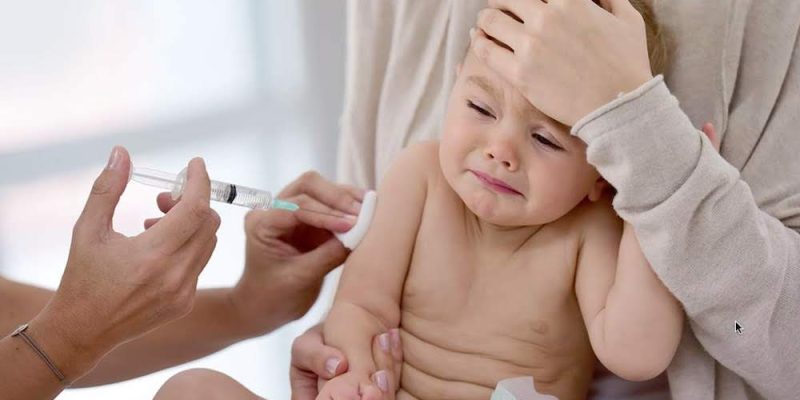Vaccinations are a crucial step in ensuring the health and well-being of your baby. For parents, understanding the importance of baby vaccination in SG and knowing how to navigate the process is essential to protecting their child from preventable diseases. This guide offers detailed insights into what vaccinations entail, how they work, and the specific ones that parents in Singapore must prioritize for their children.
What Baby Vaccination Entails
Baby vaccination involves introducing a small, safe amount of a disease-causing agent or its components into a baby’s immune system. This stimulates the body to produce antibodies, enabling the immune system to recognize and combat specific diseases effectively. In Singapore, vaccinations are provided in accordance with the National Childhood Immunisation Schedule (NCIS) to address local and global health concerns.
How Vaccinations Work
Vaccinations train the immune system to identify and eliminate pathogens before they cause illness. The antigens in vaccines mimic the bacteria or viruses they protect against, triggering the body’s defense system. This response creates memory cells that remain vigilant, ensuring the child’s immune system can fight off future infections efficiently.
Why Baby Vaccination in SG Is Vital
Baby vaccination in SG is not just a recommendation; it is a legal requirement for several diseases under the Infectious Diseases Act. Immunization protects infants from life-threatening diseases, reduces the spread of contagious illnesses within communities, and minimizes hospitalizations and medical costs. Early vaccination also helps build herd immunity, shielding vulnerable individuals who cannot be vaccinated due to medical reasons.
Key Vaccinations Parents Must Prioritize
-
Hepatitis B Vaccine
Administered at birth, one month, and six months, the Hepatitis B vaccine protects against liver infections caused by the Hepatitis B virus. This disease can lead to chronic liver conditions if not addressed early.
-
BCG Vaccine (Bacille Calmette-Guerin)
This vaccine, usually given at birth, prevents severe forms of tuberculosis (TB), including TB meningitis. TB remains a global health concern, and early immunization is critical in reducing the risk.
-
DTP Vaccine (Diphtheria, Tetanus, and Pertussis)
A series of shots given at two, four, and six months of age, the DTP vaccine safeguards against three potentially fatal bacterial diseases: diphtheria, tetanus, and pertussis (whooping cough).
-
Polio Vaccine
Offered as part of a combination vaccine, this prevents poliomyelitis, a highly contagious disease that can cause paralysis. It is typically administered in multiple doses starting at two months of age.
-
Haemophilus Influenzae Type B (Hib) Vaccine
Protecting against infections like meningitis and pneumonia, the Hib vaccine is given in multiple doses between two and six months of age.
-
Pneumococcal Vaccine
Administered in a series at two, four, and 12 months, this vaccine prevents illnesses caused by the Streptococcus pneumoniae bacteria, including meningitis, sepsis, and ear infections.
-
Measles, Mumps, and Rubella (MMR) Vaccine
Given at 12 months and a booster at 15–18 months, the MMR vaccine prevents these highly contagious viral diseases that can cause severe complications, including brain damage.
-
Rotavirus Vaccine
Protecting against severe diarrhea and dehydration in infants, this oral vaccine is typically given at two and four months of age.
-
Influenza Vaccine
Seasonal flu shots are recommended annually for babies older than six months to prevent serious respiratory complications.
-
Human Papillomavirus (HPV) Vaccine
Although administered later in life, it is worth noting that this vaccine is crucial for long-term protection against certain cancers and is included in the national vaccination schedule for adolescents.
What to Remember Before and After Baby Vaccinations
-
Understand the Vaccination Schedule
Keep track of the NCIS to ensure your child receives timely doses. Pediatricians in Singapore provide clear vaccination timelines to make this process seamless for parents.
-
Monitor for Allergic Reactions
While side effects are rare, some babies may experience mild fever, redness, or swelling at the injection site. Severe reactions, such as breathing difficulties or prolonged crying, require immediate medical attention.
-
Maintain Accurate Records
Document every vaccine your baby receives. This information is vital for school enrollment and travel purposes in the future.
-
Prepare Your Baby
Comfort your baby before and after the appointment. Feeding, swaddling, or soothing your baby post-vaccination can reduce discomfort.
-
Stay Informed About Optional Vaccines
Consider additional vaccines, such as the chickenpox and hepatitis A vaccines, based on your pediatrician’s recommendations and your baby’s health needs.
How to Access Baby Vaccination in SG
Vaccinations are readily available at public polyclinics, private pediatric clinics, and hospitals across Singapore. The government subsidizes most essential vaccines under the NCIS for citizens. Parents should also explore the Child Development Account (CDA), which helps offset costs for optional vaccinations.
Final Thoughts on Baby Vaccination in SG
Prioritizing your baby’s immunization is one of the most critical steps in safeguarding their health. Each vaccine provides protection against serious illnesses that can impact a child’s quality of life. By adhering to the recommended schedule, understanding each vaccine’s purpose, and maintaining open communication with your pediatrician, you can ensure your baby grows up healthy and protected.








Comments